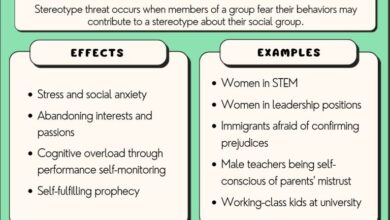
How Parents Trauma Leaves Biological Traces in Children
How parents trauma leaves biological traces in children – How parents’ trauma leaves biological traces in children is a sobering reality, revealing the deep and lasting impact of adversity on generations. The science of epigenetics, which studies how environmental factors can alter gene expression, provides compelling evidence for this phenomenon.
Parental trauma, whether stemming from abuse, neglect, or other traumatic experiences, can leave epigenetic “marks” on a child’s DNA, influencing their physical and mental health throughout life. These changes can manifest in a myriad of ways, from increased susceptibility to mental health disorders to altered stress response systems, shaping the very fabric of a child’s well-being.
This intricate interplay between parental trauma and epigenetic inheritance underscores the importance of understanding how trauma transcends generations. By delving into the mechanisms of transgenerational trauma, we can gain valuable insights into the complex pathways through which parental experiences impact their children.
This understanding paves the way for interventions aimed at breaking the cycle of trauma and promoting resilience in families impacted by adversity.
The Science of Epigenetics

Epigenetics is a fascinating field that explores how environmental factors can influence gene expression without altering the underlying DNA sequence. It’s like a switch that can turn genes on or off, impacting how our bodies function and develop.
Epigenetic Changes and Gene Expression
Epigenetic changes involve modifications to the DNA and its associated proteins, known as histones. These modifications can affect how tightly DNA is packaged, influencing the accessibility of genes to the cellular machinery that reads and transcribes them.
Imagine DNA as a long string of instructions. Epigenetic changes are like sticky notes attached to the string, highlighting certain sections that need to be read or ignored.
One key epigenetic mechanism is DNA methylation, where a methyl group (CH3) is added to a DNA base, typically cytosine. This methylation can suppress gene expression by blocking the binding of transcription factors, proteins that initiate gene transcription.Another important mechanism is histone modification, which involves adding or removing chemical tags, such as acetyl groups, to histone proteins.
These modifications can alter the structure of chromatin, the complex of DNA and histones, making genes more or less accessible for transcription.
Environmental Factors Shaping Epigenetic Patterns
Epigenetic changes are highly dynamic and can be influenced by a wide range of environmental factors throughout life. These factors include:
- Diet: Studies have shown that dietary components, such as folate and vitamin B12, can influence DNA methylation patterns. For example, a diet rich in folate has been associated with lower levels of DNA methylation in certain genes.
- Stress: Chronic stress can trigger epigenetic changes that affect gene expression related to stress response and immune function. For instance, exposure to stress hormones, such as cortisol, can alter methylation patterns in genes involved in the hypothalamic-pituitary-adrenal (HPA) axis, the body’s stress response system.
- Toxins: Exposure to environmental toxins, such as heavy metals and pesticides, can also induce epigenetic modifications. These changes can contribute to various health problems, including cancer and developmental disorders.
- Lifestyle: Factors such as exercise, sleep, and social interactions can also impact epigenetic patterns. Regular exercise has been linked to beneficial epigenetic changes, while lack of sleep can lead to detrimental alterations in gene expression.
Parental Trauma and Epigenetic Modifications in Offspring, How parents trauma leaves biological traces in children
Parental trauma can have profound effects on offspring, not only through behavioral and psychological pathways but also through epigenetic mechanisms. Studies have shown that parental experiences, especially during critical developmental periods, can leave lasting epigenetic marks on offspring.
- Maternal Stress During Pregnancy: Maternal stress during pregnancy has been linked to altered methylation patterns in offspring’s genes involved in stress response, brain development, and immune function. For example, studies on rodent models have shown that prenatal stress can lead to increased methylation in the glucocorticoid receptor gene, a key player in the stress response system.
This can result in offspring being more susceptible to stress and anxiety.
- Paternal Trauma: While less studied, paternal trauma can also influence offspring’s epigenetic landscape. For instance, studies have shown that paternal exposure to traumatic events, such as combat, can alter methylation patterns in sperm cells, potentially affecting offspring’s susceptibility to mental health disorders.
Last Point: How Parents Trauma Leaves Biological Traces In Children
The implications of transgenerational trauma are far-reaching, affecting not only individual lives but also the health and well-being of society as a whole. By fostering awareness and providing support to families grappling with the legacy of trauma, we can empower individuals to heal, break free from harmful patterns, and create a brighter future for generations to come.
Understanding the biological and psychological mechanisms underlying transgenerational trauma is crucial for developing effective strategies to mitigate its impact and foster a world where every child has the opportunity to thrive.
It’s fascinating how the impact of parental trauma can be seen in the biological makeup of their children, almost like a ripple effect in a pond. This generational impact highlights the need for sustainable solutions, and thankfully, we’re seeing progress with initiatives like firms pledging to clean up construction with green net zero concrete.
By creating a healthier environment for future generations, we can hopefully minimize the burden of past trauma and build a brighter future for everyone.
It’s incredible to think about how the experiences of our parents can literally shape our biology. The impact of parental trauma can be passed down through generations, affecting everything from our stress response to our immune system. While we’re all dealing with the fallout of that, there’s some good news coming out of Washington, D.C.
– manchin and schumer announce surprise deal on climate health care and tax package. Hopefully, this deal will address some of the issues that contribute to parental stress and ultimately create a healthier environment for future generations. Understanding the biological impact of parental trauma is crucial for building a more just and equitable society, where everyone has a chance to thrive.
It’s fascinating how the effects of parental trauma can be passed down through generations, leaving biological traces in their children. This concept, much like the controversial idea that T-Rex was actually three distinct species , challenges our understanding of how things are passed on.
While the scientific community debates the T-Rex’s classification, researchers are uncovering more about the lasting impact of parental trauma on children’s development, highlighting the need for greater awareness and support.






